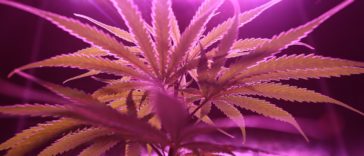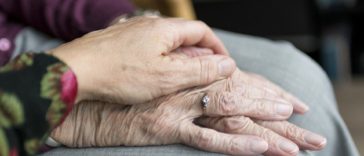This website is informational and cannot diagnose or treat illness or disease. Medical marijuana should be used under the direction of a licensed healthcare provider. This site contains advertisements. If you click a link and make a purchase, MarijuanaMommy.com may receive a commission.
The Therapeutic Potential of Psychedelic Medicine
The field of psychedelic medicine is growing rapidly. Watch as I chat with Shelby Hartman and Madison Margolin about the therapeutic potential of psychedelic medicine. Shelby & Madison are co-founders of DoubleBlind.

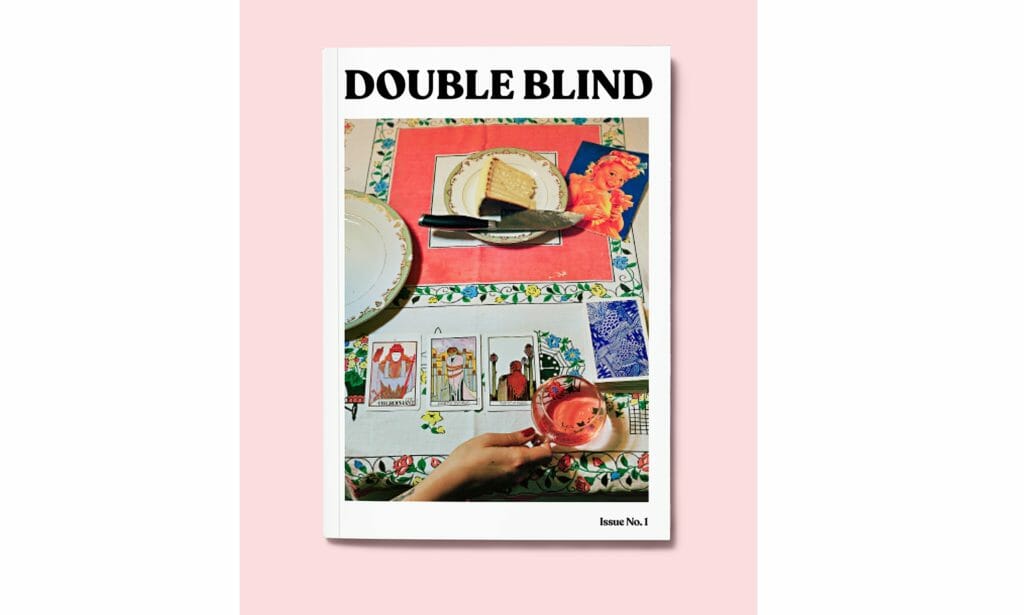
About DoubleBlind
DoubleBlind is a biannual print magazine and digital media company at the forefront of the rapidly growing psychedelic movement. With contributors around the globe, DoubleBlind covers stories from South America’s ayahuasca tourism industry to th
e Silicon Valley microdosing trend and the groundbreaking research at leading universities. At the core of DoubleBlind’s reporting are some of the most important issues of our time: the depression epidemic, the corporatization of medicine, and the aching people feel for spirituality or some other collective sense of meaning—all presented in visually compelling, rigorous long-form features, poetry, art, and photo essays. In 2020, DoubleBlind debuts events, transforming these potent topics into community engagements for psychonauts and the psychecurious.
https://www.doubleblindmag.com
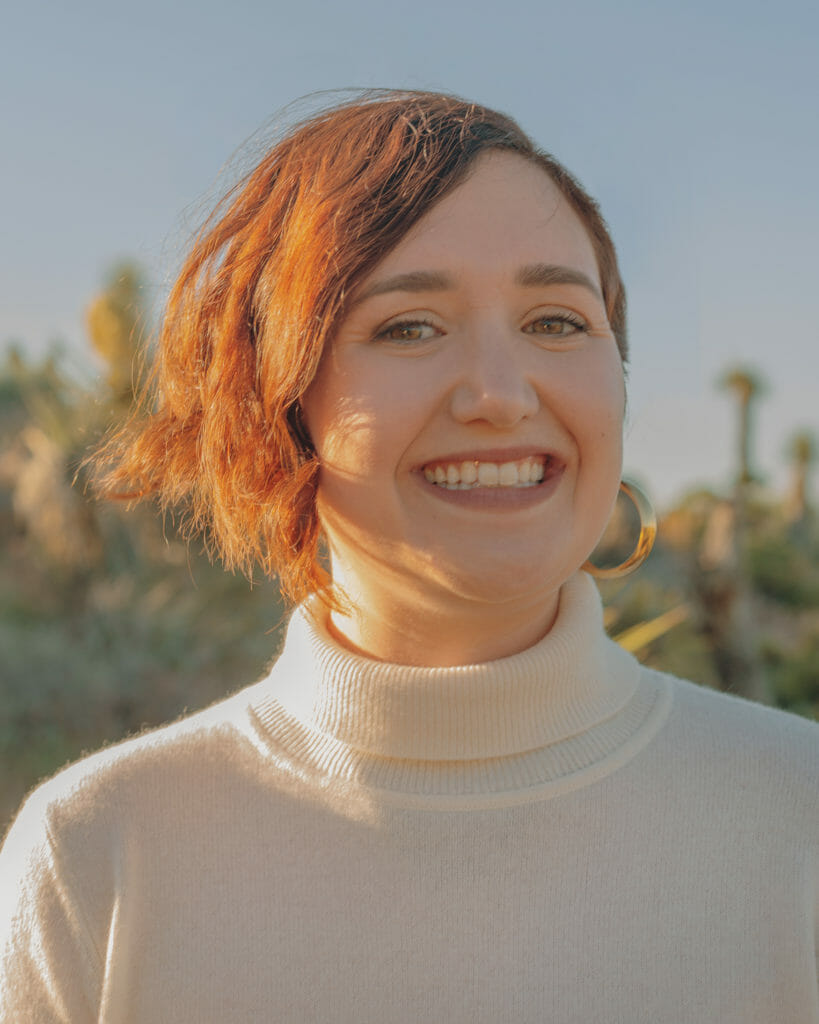
Shelby Hartman, Co-Founder, Editor-in-Chief of DoubleBlind
Shelby Hartman is the co-founder and editor-in-chief of DoubleBlind, a biannual print magazine and digital media company at the forefront of the rapidly growing psychedelic movement. Also a reporter and editor specializing in psychedelics, cannabis, drug policy, and mental health, her work has appeared in VICE, Quartz, the Huffington Post, and Rolling Stone, among others. Hartman worked in broadcast news production for CBS News, covering presidential elections, protests, natural disasters, and other breaking news. Spurred by a passion for print and investigative reporting, she transitioned to magazine writing, working as an editor at Pasadena Magazine and receiving her Master’s Degree in long-form journalism from Columbia University in 2015. Since, Hartman has worked as a columnist at LA Weekly and an editor at Herb, the largest cannabis media company, with extensive features on the cannabis industry, the psychedelic research boom, the popularization of ayahuasca, and post-traumatic stress disorder in the veteran community.
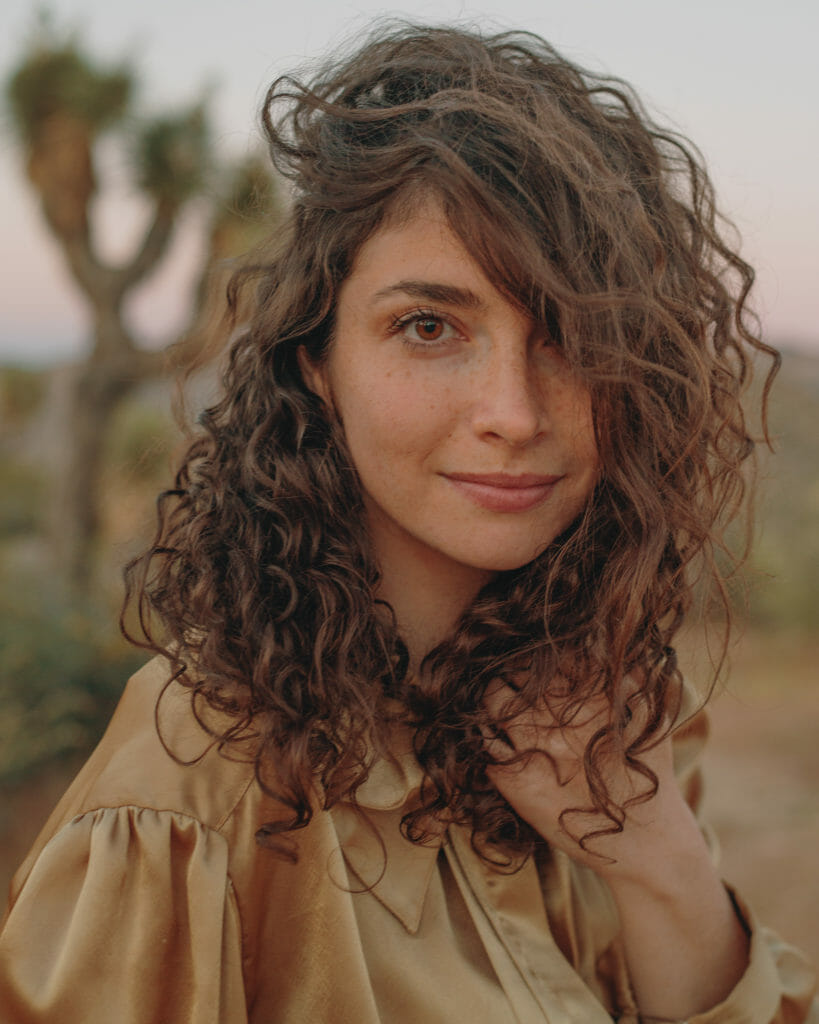
Madison Margolin, Co-Founder, Managing Editor of DoubleBlind
Madison Margolin is the co-founder and managing editor of DoubleBlind, a biannual print magazine and digital media company at the forefront of the rapidly growing psychedelic movement. Also a Los Angeles/New York-based journalist, Margolin covers psychedelics, cannabis, drug policy, and spirituality. Having written for Playboy Magazine, Rolling Stone, Nylon, VICE, LA Weekly, High Times, Tablet, and others, she also edits feature-length content for Civilized. A graduate of Columbia Journalism School and UC Berkeley, Margolin has traveled everywhere from pot farms in the Emerald Triangle to the shores of the Ganges River, and all over Israel-Palestine, exploring the role of plant medicine in religion, mental health, and conflict resolution. She got her start in journalism with a column on cannabis at the Village Voice, after having lived in south Tel Aviv working with Eritrean refugees. With more than 4 years of experience covering cannabis and other drugs, Madison has spoken on topics like social equity, cannabis feminism, cannabis journalism, and so forth at conferences like Digital Hollywood, the Association of Alternative New Media, the American Society of Journalists and Authors, The Rind’s Women in Cannabis, Pepperdine’s Cannabis Law Symposium, and more.
https://www.madisonmargolin.com
READ the Transcript:
Speaker 1: (00:00)
[music].
Jessie Gill, RN: (00:10)
Hi, I’m Jessie. I’m a cannabis nurse and the founder of marijuana mommy. And you’re watching patients are the proof where we talk about the real benefits of cannabis. And today we are talking about psychedelics. I am here speaking with Shelby Hartman and Madison Margolin, co-founders of double-blind, double-blind is a biannual print magazine and media company covering timely, untold stories about the expansion of psychedelics around the globe.
Shelby : (00:38)
Hi, thanks for having us.
Jessie Gill, RN: (00:40)
Hey guys, thank you so much for being here. So gosh, you, you are both very accomplished writers, journalists and reporters, right? So how, how did you end up starting a magazine about psychedelics? Where, where did this all start?
Madison : (00:58)
It all started on Shelby’s meditation pillow.
Shelby : (01:03)
Yeah, I was meditating and the idea just came to me. My career had sorta set the precedent for it. I had already been reporting on cannabis and psychedelics for quite some time for LA weekly and vice,, rolling stone and a number of other publications. Um, and yeah, the idea came to me that it was time for a media company that solely devoted to covering psychedelics as well as everything they intersect with. So wellness, mental health, environmental justice, how do we become more conscientious citizens as we begin to heal ourselves? And Madison a hundred percent was always going to be the person to do it with me. So I’m really glad that it’s worked out that way.
Jessie Gill, RN: (01:49)
And, and it is, it’s growing so much. And I imagine I’m on the East coast and you guys are on the West coast, so I know you’re, you guys are decades ahead of us in everything, including psychedelics. So it’s, it’s becoming much more, um, of a trending topic over there than over here. Right. How, what’s the, what’s the reception like to your magazine?
Madison : (02:12)
It’s, yeah, it’s been, it’s been great. I mean, both on both sides of the country, actually, our biggest markets are California and New York. Um, and you know, on the East coast you actually have a lot of federal research that’s happening at research institutions like Johns Hopkins or NYU, um, maps, the multidisciplinary association for psychedelic studies, which is headquartered in Santa Cruz, actually has research centers all over the country, um, in the world. Really. So the movement itself is everywhere, but you know, you could look to a California, Oregon, Colorado as centers of kind of more grassroots policy, um, uh, policy reforms. So really in all, you know, spanning the, the science to the grassroots people have been receptive in multiple different places. Whether it’s curiosity around psychedelics or an engagement in the actual like, uh, activism that’s happening or you know, hearing something about the, about the research in the news and then wanting to come to us and get a little bit more of a deep dive about.
Jessie Gill, RN: (03:16)
And there is so much research. Can you guys speak a little bit about it? Like I don’t know much about psychedelics at all. What I know they’re used, you know, they’re being looked at more and more for anxiety and a variety of mental health issues. What else are you guys seeing them being used for?
Shelby : (03:36)
Psychedelics are being investigated for so many different mental health conditions. We could never possibly cover all the research in one interview. I will say that the first kind of legitimate study that spurred what we’re referring to as the psychedelic Renaissance, which is this whole new wave of interest in psychedelics since the 1960s began in the mid two thousands at Johns Hopkins university investigated psilocybin, which is the psychoactive ingredient in mushrooms for end of life distress, meaning anxiety and depression caused by a terminal illness, um, largely in patients with cancer. Since then, we’ve seen studies looking at psilocybin for nicotine addiction, for eating disorders. Um, I spoke to someone at NYU who said they’re interested in looking at psilocybin and for criminal recidivism. So actually, yeah, so there’s so many different applications. MDMA, has sort of been the leader in the psychedelic movement as the substance that is paving the way for psychedelic medicine. MDMA which sometimes people refer to it as ecstasy. That’s not quite accurate, but MDMA is slated to be legal for posttraumatic stress disorder in 2021. There’s been millions and millions of dollars of research looking at the efficacy of MDMA for PTSD in the veteran community specifically. But it also holds so much potential for PTSD in women who’ve been sexually assaulted. People of color enduring racial trauma. Like it’s, yeah, I mean it’s, there’s so much
Jessie Gill, RN: (05:21)
And you know, PTSD is so tough, so difficult because there aren’t any treatments, you know, but they’re very limited to treating the symptoms and you know, cannabis has been a big help where people can access it, but that’s amazing. I didn’t even, I wasn’t even familiar with that, that they’re looking to actually legalize it through the FDA, huh?
Speaker 3: (05:41)
Yeah, absolutely. They are currently in phase three, which is the last stage before a medicine makes it to market. They received breakthrough therapy status by the FDA, which put them on the fast track to getting approved because it is showing so much promise in an area where the Western medical community is desperately in need of novel treatments. So absolutely. I think one of the things that’s most exciting about psychedelics as well as cannabis, and I know I’m preaching to the choir here, is that it’s showing promise for a lot of conditions that the Western medical community just hasn’t figured out.
Speaker 2: (06:17)
Absolutely. So how about the laws? Um, so I’ve read, what is it Oregon is looking to legalize psilocybin, right? And Denver has, right?
Madison : (06:27)
Denver already decriminalized, and Oakland passed it or an initiative that is essentially, it’s sort of like decriminalization or just like places that on the lowest priority. In Chicago’s a committee within city council just passed it unanimously. So now city council has to vote on it. And California has a statewide initiative that we’re trying to get on the ballot.
Shelby : (06:52)
Clarify though that the decriminalization is not legalization. Obviously you understand this, but a lot of consumers don’t. Decriminalization sort of paves the pathway for legalization, but all it means is you can no longer get arrested, um, basically. And that it’s a low priority for law enforcement. Additionally, the initiatives in Denver, it was not the city of Denver. It was the County of Denver. So a lot of people don’t realize that, again, not decriminalizing all plant medicines and psychedelics, it’s just decriminalizing psilocybin which is the psychoactive ingredient in psychedelic mushrooms. Whereas the Oakland initiative actually made, all psychedelic plant medicines and cacti a low a priority for law enforcement. So that includes like Ayhuascua, Peyote, San Pedro.
Jessie Gill, RN: (07:43)
Yeah, there are, I mean, that’s a good point. There is a huge variety and they all kind of create a different experience. Right. And different side effects.
Madison : (07:51)
Definitely. Yeah. Um, I mean, you know, just these, that like all these different plants I’ve been in ceremonial use for millennia, I get, you know, and so whether they’re, you know, the idea is that people now can cultivate them or use them sacramentaly or recreationaly or whatever without, you know, having to worry too much about prohibition.
(08:16)
It’s a lost medicine, right. A lost medicine and a lost art. I mean, that has died with, you know, so many people. It has been used in indigenous communities for, for forever. So that’s, it’s really, it’s remarkable to see it come back. What do you guys think about that? I’ve been, I’ve been, you know, browsing the different retreats that are out there. It seems like in Netherlands they do a lot of like psychedelic retreats. Is it legal over there?
Speaker 3: (09:31)
There are a lot of retreat centers. The Netherlands definitely has a booming psilocybin retreat center scene. And I just, I couldn’t tell you like it’s legal or not, but there’s one retreat center called synthesis, which a lot of people go to and I know that they’re slated to open the first legal psilocybin clinic in the next like few years. there’s also, , a retreat center in Jamaica that a lot of people go to. And then there’s a retreat center, a number of retreat centers in Mexico. Um, one of them is called WUNAVATI. there’s another one called soul medicine and then that’s just still psilocybin. Then there’s also legal ibogaine clinics as well as in New Zealand. And I couldn’t tell you where else. There’s a few countries I know where, Ibogaine clinics are legal
Jessie Gill, RN: (10:30)
now Ibogaine, that’s a little controversial, right? Does, is there, so psilocybin is, is one of the safest substances. It’s actually been declared safer than cannabis by many researchers and, but Ibogaine has had some fatalities associated with it, right?
Shelby : (10:47)
Yeah. A really small number of fatalities. We’re actually doing a story on this in the second issue of, Fouble-blind, and I want to say out of more than 4,000 estimated people who had done ibogaine at the time of this study that I read, like maybe around 15, there had been around 15 fatalities. And most of those, according to Ken Alper, who’s kind of the definitive ibogaine expert at NYU, were totally preventable and a result of just sort of careless protocols, which is scary, right? Because the problem with these retreat centers is that some of them are really great and some of them are not really great. And we have a situation now where like in the Amazon for example, there’s retreat centers that totally, review the mental health history and the medications that a person is on before booking their reservation. And then there’s other retreat centers where it’s, it’s not even a center, it’s just like a Shaman and who knows if they’re even giving you ayahuasca. Right? So it is incredibly important that people do their research to figure out that they’re going somewhere legitimate. Um, and also I would say that what’s going on with retreat centers abroad is a case for ending prohibition because if we end prohibition, then we are going to be able to have clinics here that are regulated in the United States. And none of this will be a concern.
Jessie Gill, RN: (12:20)
That’s a great point. I mean, why should people have to go out of the country to get treatment for, and you know, I think it’s good to point out that ibogaine is often used to treat addiction. Right. Are there other uses for it?
Madison : (12:32)
It’s known really as a treatment for opiate addiction and also has been shown, to be good for Parkinson’s.
Jessie Gill, RN: (12:41)
Oh really? And what exactly is ibogaine?
Madison : (12:44)
So it is the active alkaloid in the Iboga plant. So Ibogas are native to Western Africa and it’s, um, part of the, uh, traditional used by the Bwiti tribe – I hope I pronounced that correctly. So Ibogaine is like an alkaloid within that and basically it produces a trip that’s like more than a day long depending onthe patient and the dosage and you have to go like, you know, shot like we discussed like a thorough health screening to make sure that the patient is,
Jessie Gill, RN: (13:22)
because there are risks. Yeah, it is more, It’s much more risky than psilocybin. But yeah, people, people swear by it. I mean, a lot of people have had remarkable results from ibogaine treatment in other countries.
Speaker 3: (13:34)
In the second issue of double-blind in this article about ibogaine, um, one of the people that we interviewed talk to us about this theory called the great disconnect. And essentially it’s a term that was coined by, by a psychologist named Alan Leshner. And the idea is that in our society that we basically pathologize addiction and that we don’t take it seriously enough and that that is reflected in the treatments that we are and aren’t willing to consider, for addictions. So yes, the risks, there are risks to ibogaine. Um, that being said, like the risk that you’re going to die from ibogaine, especially if you’re somewhere that safe and that is doing an intake of your health history is not even remotely close to the risk that you’re going to overdose and die if you’re addicted to opioids or heroin. So that really needs to be taken into account.
Jessie Gill, RN: (14:29)
I totally agree. Before we get off, before we finish up, let’s talk a little bit about microdosing cause this is such a hot topic that everybody talks about. You know, can you speak a little bit.
Madison : (14:40)
to micro-dosing psychedelics? Yeah. I sometimes say that microdosing psychedelics is like the CBD in that it’s sort of a way to like dip your toe in and not, not really get high. Um, not that there’s anything wrong with getting high and that’s perhaps a whole another conversation. But, um, you know, whether you’re microdosing to, uh, lifts your mood or deal with it, you know, kind of like ambient anxiety or depression, you know, a lot of people also think that it makes them more productive at work, or more creative or that a lot crazy. Yeah, they’re all different ways you can microdose, whether you’re microdosing LSD or psilocybin, which I guess would be the most popular things to microdose. And you can really just get on a regimen with it so people will figure out a like what’s a comfortable dose for them. Um, the idea is that it’s sub perceptible, meaning that maybe you feel a little lifted but you’re not supposed to be like seeing patterns or feeling um, mentally high per se.
Shelby : (15:43)
Yeah. If you’re seeing patterns. You’re not microdosing.
Madison : (15:46)
[inaudible] absolutely not. Yeah. Yeah. You, I mean even on a regular dose you might not see patterns, but um, just, just so people know, like if they microdose, like you took too much if you’re seeing patterns!
Jessie Gill, RN: (16:01)
So the whole idea is to not really have too many effects as same as with cannabis. You keep the side effects low and to get the most benefit out of it.
Madison : (16:12)
Yeah. It really just kind of makes, it just gets, for me, it like gets rid of the static in my head a little bit. I can be a little bit more straightforward in whatever I’m doing. So a very be here now kind of experience.
Jessie Gill, RN: (16:26)
So for people who are interested in learning more about psychedelics, where do you, where do you guys send them besides your amazing magazine, which isn’t one of the, is it the first magazine about psychedelics? Okay.
Speaker 3: (16:40)
I think I don’t want to diminish all the incredible outlets in the psychedelic media space, reality sandwich and symposia and chacruna and there’s a lot of people doing incredible stuff already, but I do think that we’re the first physical is why is widely distributed. I’ll put it that way. Cause we’re in a number of bookstores.
Jessie Gill, RN: (17:05)
Fantastic. And it’s a, it’s a beautiful, beautiful magazine. And when does the next issue come out?
Shelby : (17:10)
December.
Madison : (17:13)
How can people find you? Where can they find the magazine? @doubleblindmag is our handle on Instagram, Twitter, find us on Facebook, doubleblindmag, and also on our website, doubleblindmag.com.
Jessie Gill, RN: (17:30)
Fantastic. Well, thank you guys so much. Thank you for the work you’re doing. It’s incredible. And so, so needed. So I’ve truly appreciate it and thank you for talking to me today.
(17:38)
Thanks for having us.Trending Now


